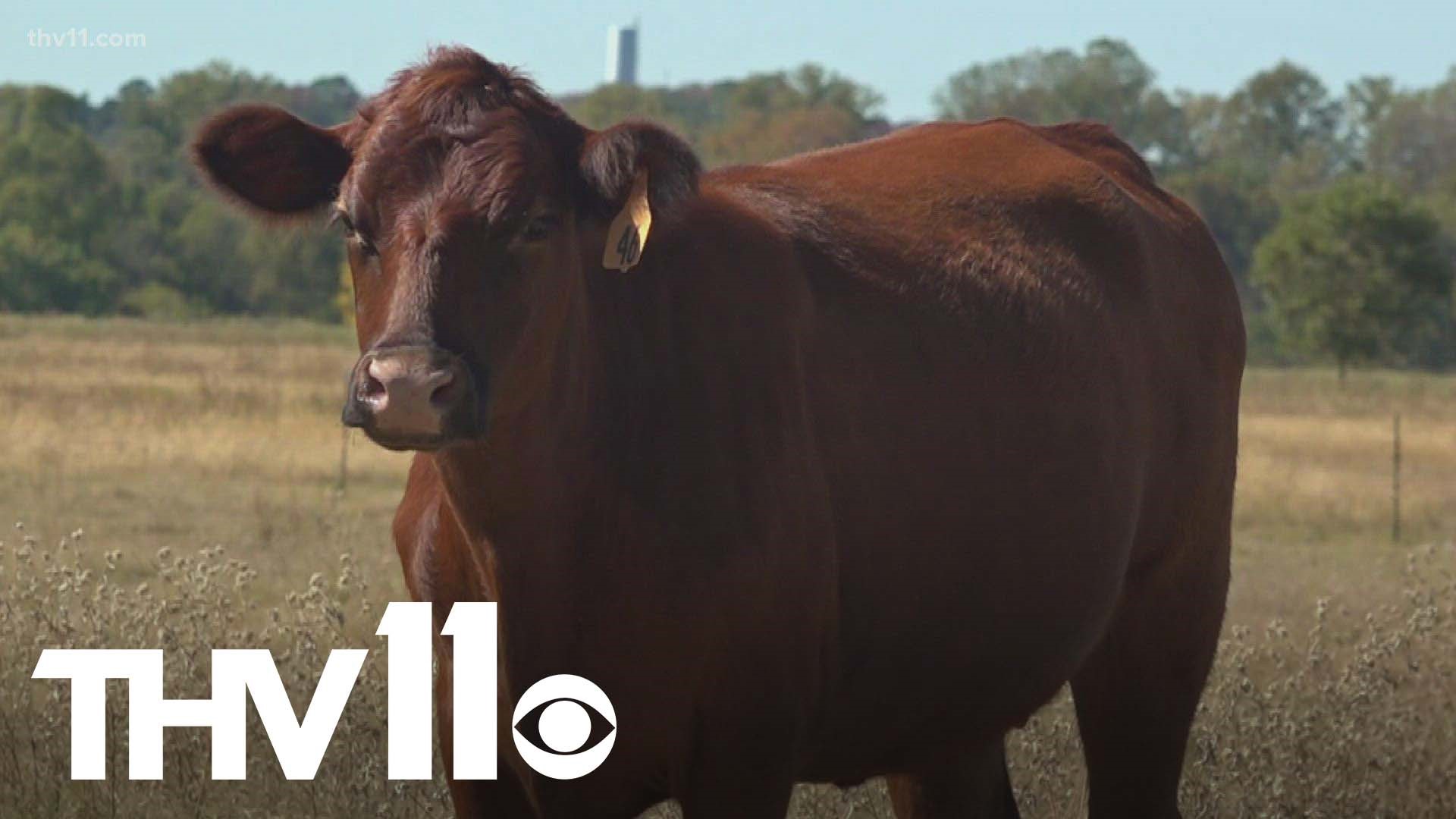ARKANSAS, USA —
It’s been two years and counting of financial stress for Arkansas cattle farmers like Joe Thrash.
“High fuel prices, high fertilizer prices, the drought, the cost of hay. It's just, everything's operating on a very thin line right now,” described Thrash.
Because of these high prices, Thrash had to consolidate his herd.
“We're just glad to pay our bills,” he added.
But he's not the only farmer who has had to make this difficult decision.
“It affects producers of all sizes,” said Cody Burkham with the Arkansas Cattlemen’s Association. “It's just led to consolidation across the board.”
Burkham said that there's a lot of uncertainty right now and farmers like Thrash are doing the best they can.
“We’re selling our cattle sooner,” said Thrash. “You either feed them or you have to sell them, you'll sell them at a lighter weight, so they won't bring as much money as you sell by the pound.”
While farmers' profits could potentially fall, beef prices could possibly rise in the future.
“Something that would show up for consumers a year and a half to two years from now,” said James Mitchell with Agriculture Economics at the University of Arkansas.
Mitchell said that beef prices haven't risen that much for the past few years, but the USDA thinks that they could move faster next year.
“They think meat prices in 2023 will be up one to 2%,” said Mitchell.
Meanwhile, Thrash has been focused on getting through the winter.
“Soon we're going to sell some more cattle soon just because to match our cattle to our hay,” said Thrash.

